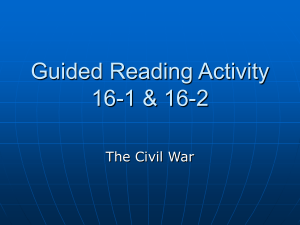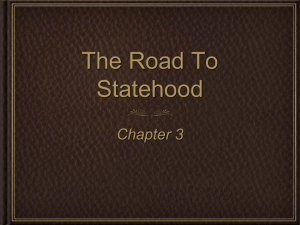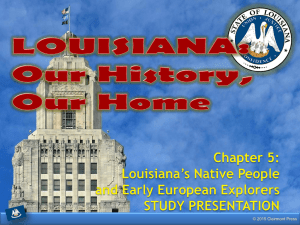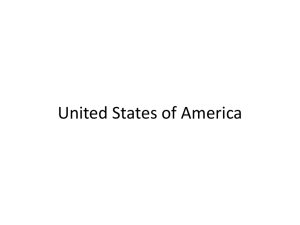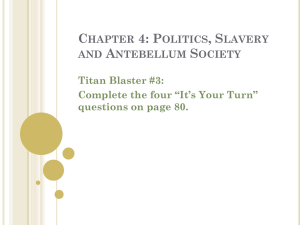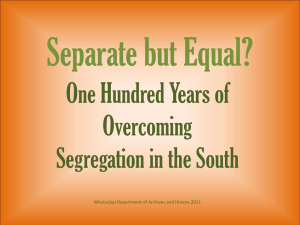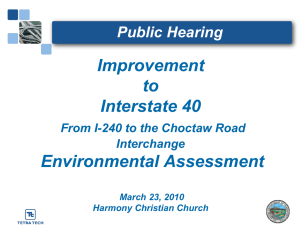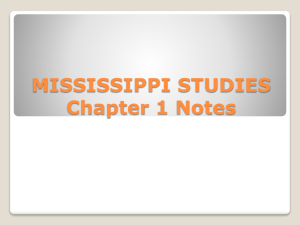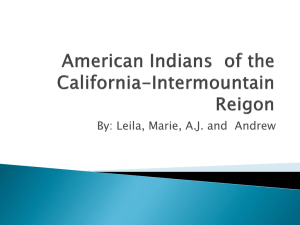Native Americans of Mississippi
advertisement
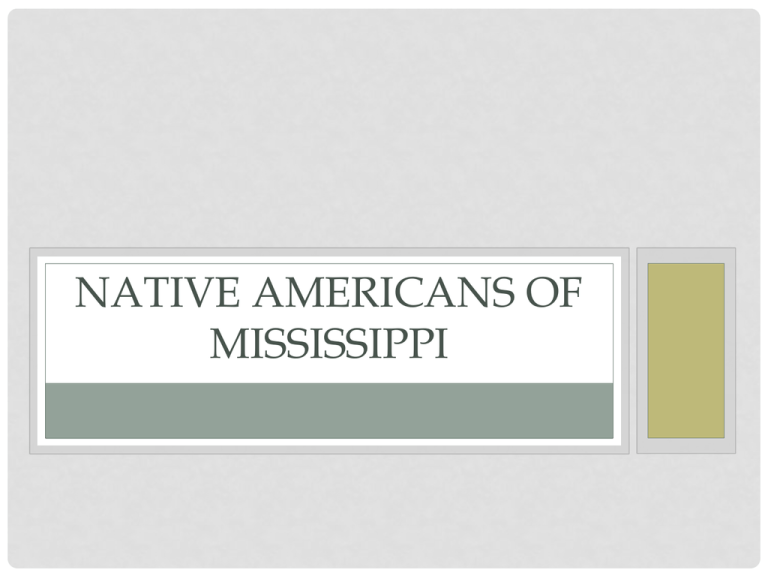
NATIVE AMERICANS OF MISSISSIPPI DID YOU KNOW? • Missi and Sippi are Indian words meaning “Great River.” PREHISTORIC CULTURES • • • • Paleo Culture 10,000 B.C. – 8,000 B.C. Archaic Culture 8,000 B.C. – 500 B.C. Woodland Culture 500 B.C. – 1,000 A.D. Mississippian Culture 1,000 A.D. – 1,600 A.D. EARLY NATIVE AMERICANS • Paleo – Ice Age – Earliest Americans crossed land bridge from Siberia into Alaska (and downward from there) • Archaic – Climate warmer and drier – Native Americans adjusted to climate and became less nomadic • Woodland – Highly organized societies in Mississippi and Ohio River valleys developed – Built burial mounds over tombs – Moundbuilders – lived alongside rivers and streams (see slides below) – Villages grew larger and tied together politically – Used bow and arrow MISSISSIPPIAN • built religious buildings and the homes of chiefs on top of their flat, rectangular mounds • Choctaw connect their early history with a mound called Nanih Waiya [Na’-na Wai’-a] along the Pearl River in southeastern Winston County IN NATCHEZ THE TEMPLE MOUND AT WINTERVILLE NANIH WAIYA MOUND SITES IN MISSISSIPPI • • • • • • • • • • • Bear Creek Pharr Owl Creek Bynum Winterville Jaketown Nanih Waiya Pocahontas Boyd Emerald Grand Village NATIVE AMERICAN SOCIETIES • Most of the Native American societies in Mississippi, such as the Choula, Pascagoula, Tunica, and Biloxi, were fairly small. • The largest tribes were the Chickasaw, Choctaw, and the Natchez. • With the exception of the Biloxi, the languages of the American Indians in Mississippi were related to those spoken by the other tribes of the Southeast. – The southeastern Indians, including the Cherokee and the Creek, shared many beliefs, practices, and customs. MISSISSIPPI TRIBES (TRIBES IN RED INDICATE THE LARGER TRIBES) • • • • • • • • • • • • • • CHICKASAW (north Mississippi) TAPOSA CHAKCHIUMA IBITOUPA TIOU YAZOO HOUMA KOROA TUNICA NATCHEZ (south Mississippi) CHOCTAW (central Mississippi) ACOLAPISSA BILOXI PASCAGOULA CHOCTAW • Connect early history with Nanih Waiya (Winston County) http://www.wlbt.com/story/14932810/indian-head-rockthe-rocks-of-winston-county • Major crop: maize (corn) • One of three largest tribes • Choctaw Fair http://www.youtube.com/watch?v=O5o61Gcqyw&feature=results_video&playnext=1&list=PLB11AF31F BFBCB784 • (Choctaw Code Talkers – Choctaw nation – not just Mississippi) http://www.youtube.com/watch?v=3Y0mmVxxr3w NATCHEZ • • • • “Great Sun” chief lived on top of mound here Major crop: maize (corn) One of three largest tribes http://www.wlbt.com/story/15279745/emeraldmound-in-natchez Archaeologists at work near the Great Sun’s Mound, Grand Village of the Natchez Indians, in 1972. The Mississippi Department of Archives and History conducted excavations at the Grand Village in 1930, 1962, and 1972. Photograph courtesy of the Mississippi Department of Archives and History. CHICKASAW • Major crop: maize (corn) • One of three largest tribes MISSISSIPPIAN NATIVE AMERICANS Smaller tribes: Choula, Pascagoula, Tunica, Biloxi Larger tribes: Chickasaw, Choctaw, Natchez Major crop: maize (corn) Well organized and had developed ways of life that fit into environment (HUMAN-ENVIRONMENT INTERACTION) • Each village included several clans (groups of related families) • • • • • Punished criminals • Protected individuals from violence • Exogamy: practice of marrying outside the clan • Polygyny: having more than one wife (occasionally, a man in tribe had two wives) • Built villages close to streams/creeks • Religious beliefs: centered on sun and the sacred fires (represented sun on Earth); believed in many spirits associated with nature and animals CHOCTAW STICK BALL • http://www.youtube.com/watch?v=v7NoDil-c0E SPANISH EXPLORERS • First to visit MS • (1539-1542) Hernando de Soto explored area searching for gold and silver • Attacked north of Mobile by Native Americans but NA did not know how to fight soldiers so were defeated • Introduced horses/hogs to America • MAIN OUTCOME: diseases spread from Spanish to Native Americans who had no immunity to them • Repeatedly attacked by Native Americans • Reached Gulf of Mexico and sailed to Mexico • Never returned FRENCH EXPLORERS • Visited MS after Spaniards • Originally settled in Quebec, Canada and explored from there • 1673: Louis Jolliet (trader) and Father Jacques Marquette (missionary) sailed down MS River and reached presentday site Rosedale, MS • Turned around when they realized that river flowed into Gulf and not Pacific Ocean • 1682: Rene Cavelier, de La Salle, Henri de Tonti, and Father Membre traveled down MS River and claimed region for France • From 1699 to 1763, the future state of Mississippi was a part of the French colony of Louisiana. • During these years, the French explored the region, established settlements and military outposts, engaged in political and economic relations with the area’s American Indians, and sought to establish a profitable economy French: built Fort Rosalie in 1716 (Natchez) BRITISH MISSISSIPPI • MS officially part of province West Florida (1763) (included southern halves of Alabama and MS as well as parts of Florida) • 1783 Treaty of Paris (between US and Great Britain…peace treaty of Revolutionary War): US controlled southern boundary at 31 degrees north latitude • Spain held territory south of that line (refused to give up Natchez District which was north of line) • Spain signed the Treaty of San Lorenzo (Pinckney’s Treaty) in 1795 in which it recognized the 31st parallel as the boundary between Spanish Florida and the United States. SETTLEMENTS • Spain, England, and France established colonial settlements in eastern North America • First European settlement in MS – Ocean Springs • Mississippi ruled first by French, then English, and finally Spain • Mississippi Territory - after centuries of control by several European powers, the land that would become Mississippi became a part of the United States at the close of the 18th century… April 7, 1798, Congress created the Mississippi Territory
